Proud of highest MPS score
Meet Hilina Shiferaw, the Safety Health Environmental Compliance (SHEC) Head for Florensis Abyssinia (FAF) in Ethiopia. She joined the company in 2017 and has since been responsible for worker Safety and Health, Environmental Compliance, and certifications for FAF's high-tech cuttings production location in Ejersa.
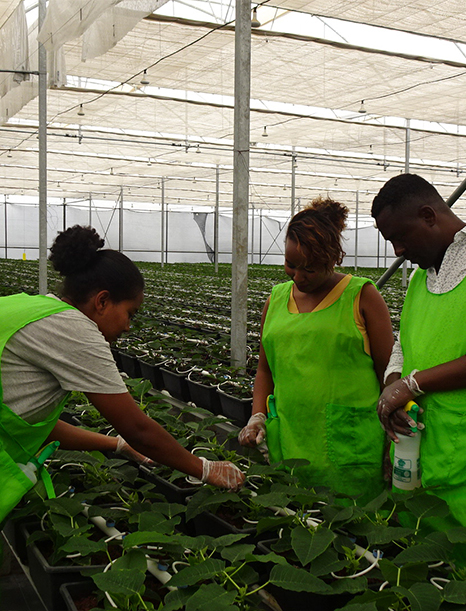
Registration tool
Hilina works closely together with the HR Manager. She cooperates with various departments, including Finance, HR, Production and Logistics, to support the company's overall sustainability efforts. Her primary tool for monitoring sustainability is the MPS-ABC registration tool. Hilina's colleagues record daily usage of fertilizers, chemicals, and fuel, which she consolidates and submits monthly to the MPS website for analysis. The company also calculates its electricity, water, and waste usage through meter readings or government-supplied data.
One challenge Hilina encounters is when the chemicals used are not on the MPS list. In such cases, she takes a picture of the label, sends it to MPS, and waits for a new product number. Hilina is proud of the company's MPS ranking, which is currently at 108 out of 100 points. Hans Goudswaard can tell you all about our MPS certifications.
90% biological methods
Hilina attributes the high ranking to the company's commitment to working compatibly with the environment. FAF strives to reduce its chemical usage and is proud to have implemented Integrated Pest Management methods, which are used for 90% of its operations. The company's IPM plan includes a team of five people working together to prevent plant diseases in a biological way. FAF uses biological insects for crop protection, hormones PGR, and fungicides, resulting in very low chemical use. The company has even switched to steaming instead of using metam sodium, an orange product in the MPS calculation. Ronald Geverinck explains why IPM is so important.
How do we benefit
Being MPS certified has benefits beyond just environmental sustainability. FAF's employees also benefit from minimizing chemical use and less spraying, improving their health and safety. Besides that, the company has social certifications that guarantee good labour conditions. Hilina finds it challenging to identify any issues with MPS compliance since their company already has a high ranking. The only thing she can come up with, is that on rare occasions they may receive a lower score without a clear reason. In such cases they contact the MPS organization to identify the source of the problem. “Florensis Abyssinia has everything under control”, Hilina concludes with a smile.
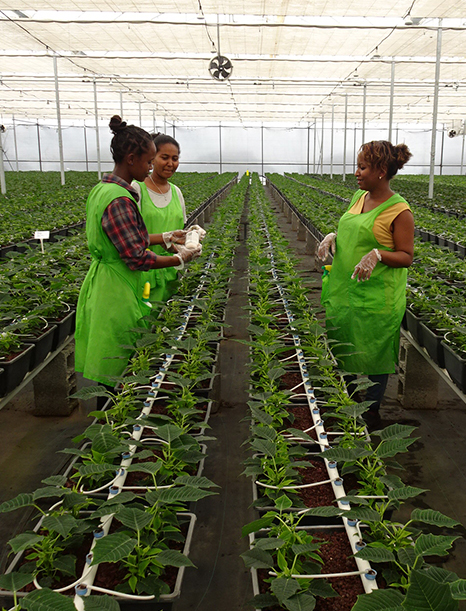
From company goal to personal goal
FAF's next MPS goal is contributing to the general Florensis goal to reduce chemical use by 30% by 2025. To achieve this, Hilina's colleague from location Hendrik-Ido-Ambacht, Ronald Geverinck, is supporting FAF in reducing the amount of chemicals used and finding alternative products. However, with FAF's already very low chemical use, this goal may be challenging thus they strive for minimizing their environmental impact in general.
Hilina is also personally committed to sustainability and dreams of creating a healthy environment for the next generation. This dream is even more important now that she is six months pregnant with her first child!
In conclusion, Hilina Shiferaw's role as the Safety Health Environmental Compliance Head for Florensis Abyssinia is vital to the company's overall sustainability efforts. With her dedication and commitment, FAF is making significant steps towards reducing its impact on the environment while prioritizing the health and safety of its workers.
Interested in the sustainability goals for our location in Portugal?
Latest news

Cooperation with Alpha Nurseries
In the world of plants, new ideas often come from working together and being creative. That is why Maarten Wouda, Sales Representative at Florensis took some groundbreaking initiatives in the plant market...
Read more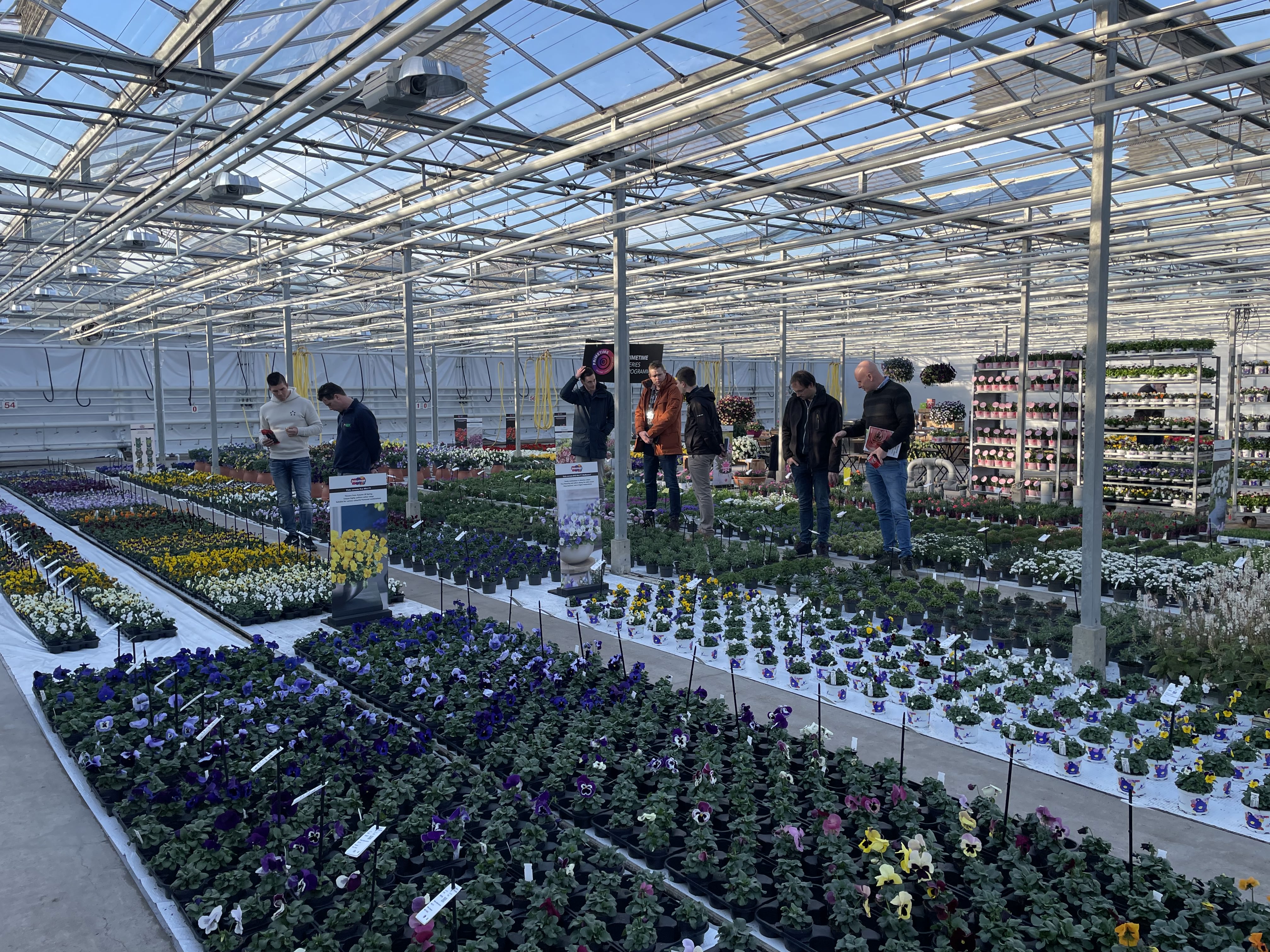
Visit our Spring Show 2024
After 2 years of development, we proudly present our latest value-added products within the market for biennials and spring-flowering perennials.
Read more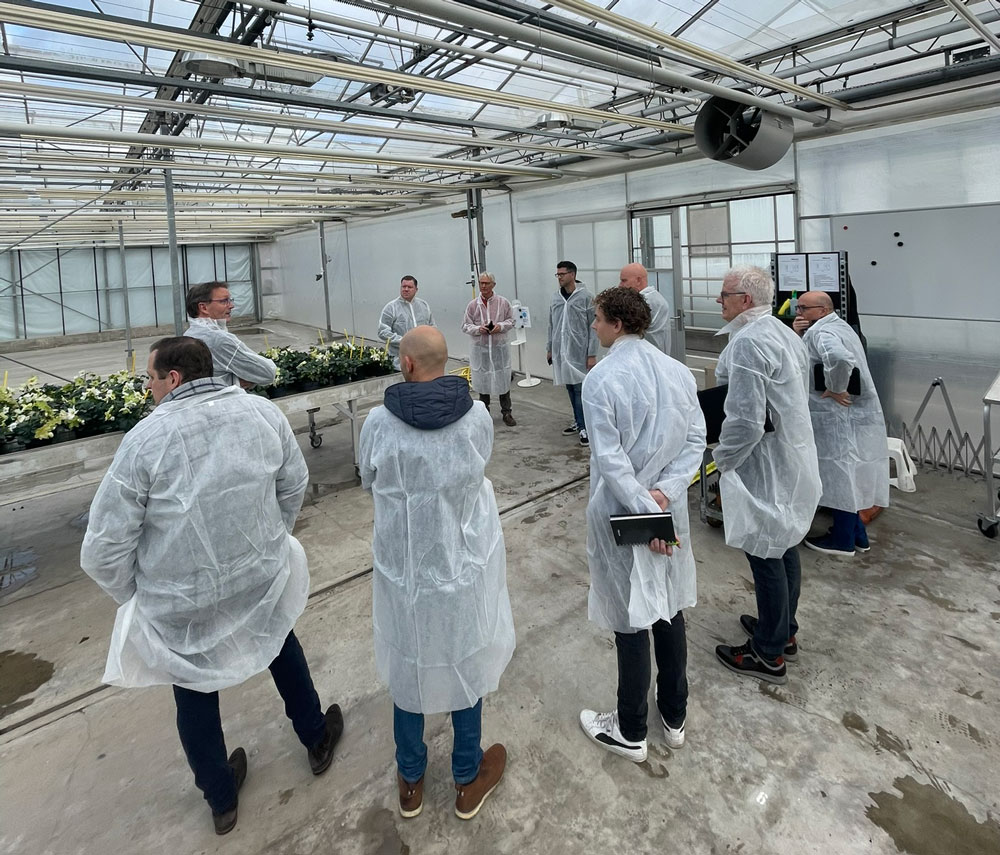
Helleborus Advent Star Event
Along with our top 10 Helleborus customers, we set up a trial to gain even more insight into the qualities of our Advent Star.
Read more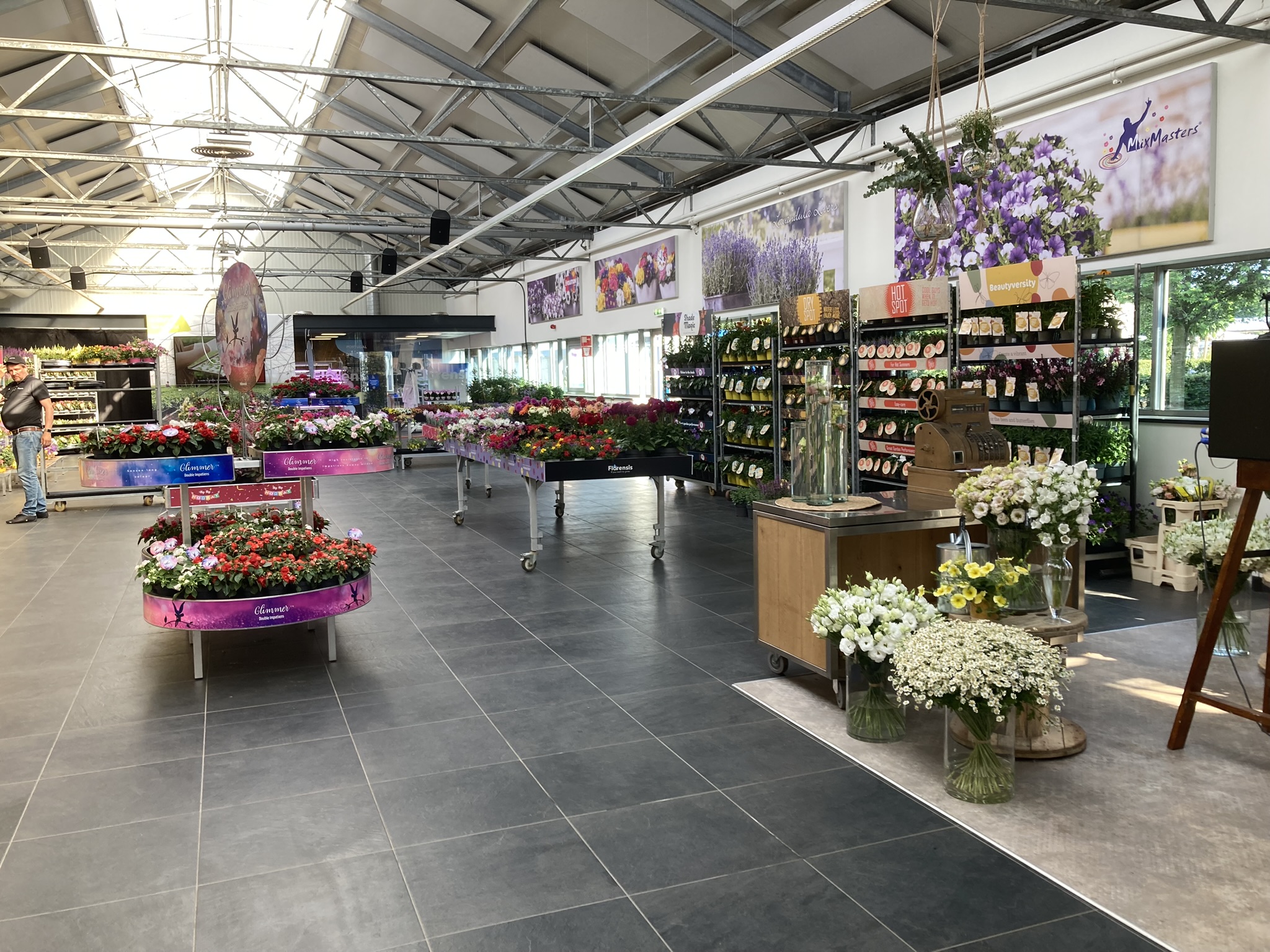
These Retail Solutions will help you take the next step in a sustainable assortment.
As growers and retailers, your want to offer customers gardening solutions that are both convenient and ecologically conscious.
Read more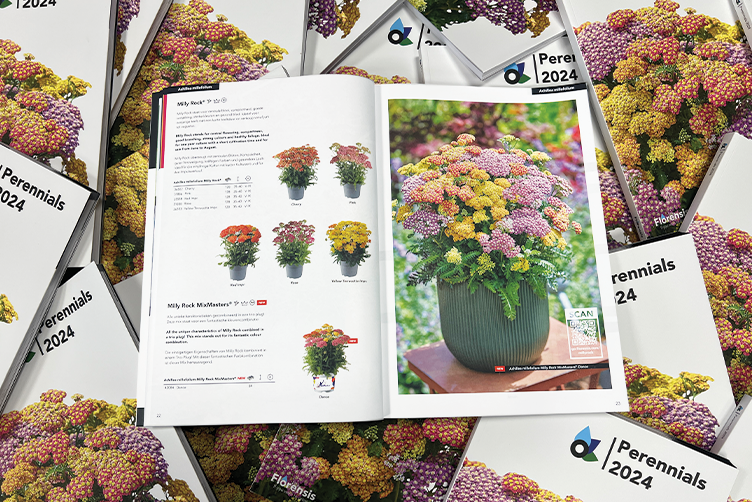
Check the Retail Solutions in our new Perennials Catalogue.
As with the Annuals catalogue, we thought about the environment with the Perennials catalogue by reducing the number of pages.
Read more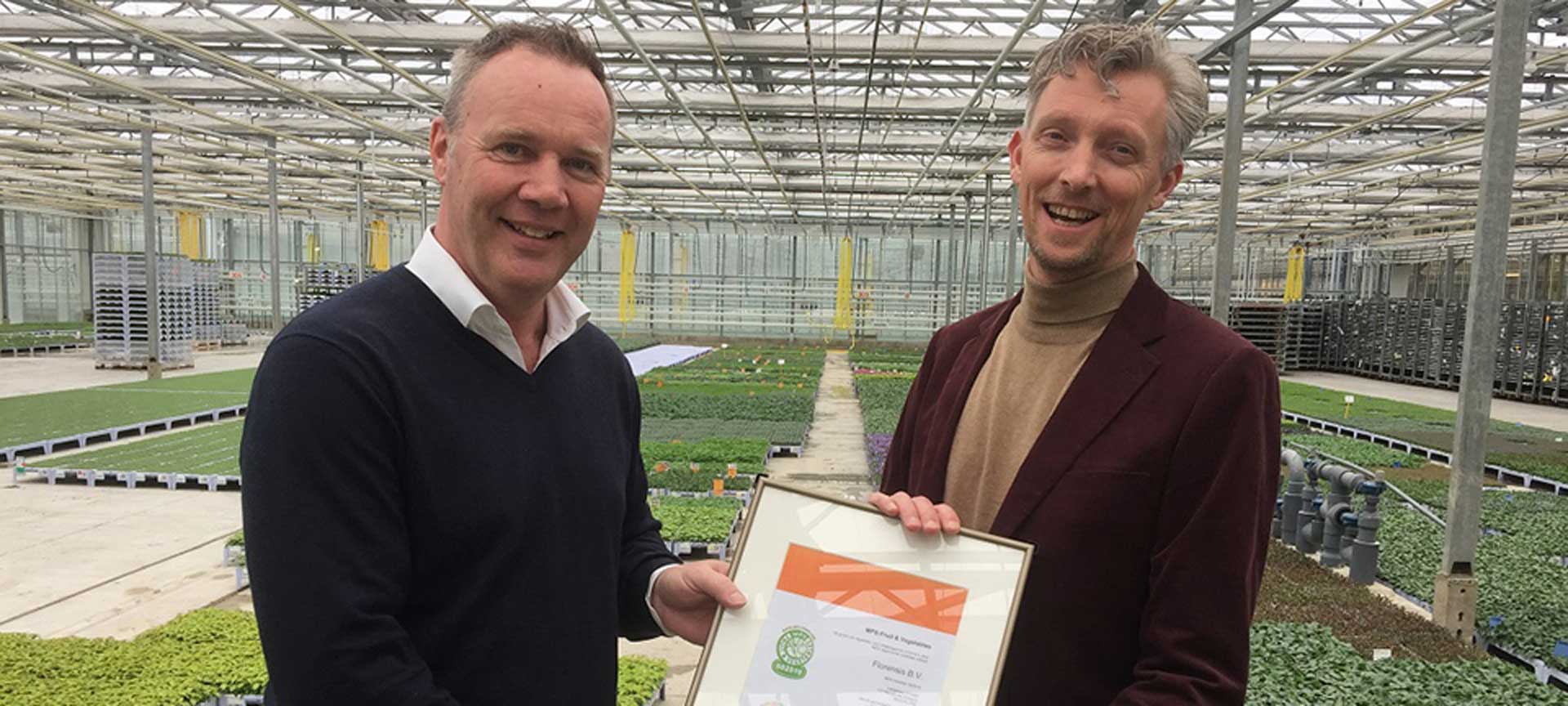
Why certifications and CO2 calculations can benefit you
As a customer, you want to know where your plants come from and how they are grown. Hans Goudswaard, responsible for Quality Assurance, considers transparency very important.
Read more